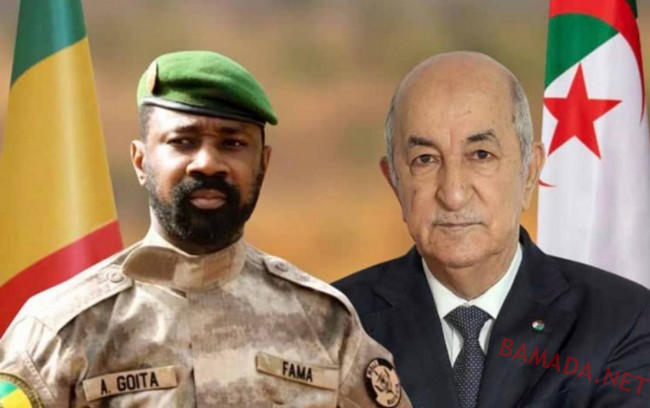Mali rejects Algerian mediation amid tensions over northern conflict

Mali’s transitional president, General Assimi Goïta, has firmly dismissed Algeria’s latest attempt to mediate in the country’s northern crisis, accusing Algiers of pursuing its own interests rather than those of the Malian people.
Speaking at the official handover of the proposed National Charter for Peace and Reconciliation — a document claimed by authorities to reflect six months of national consultations — Goïta took aim at what he labelled “foreign interference,” particularly from Algeria. He alleged such involvement had weakened the state and exacerbated ethnic divisions.
“Agreements concluded to this day have not been in the interest of Malians, nor in the interest of peace and harmony in Mali,” Goïta said. “Everything done in the name of peace was influenced by external meddling. If there is foreign involvement in your crisis, the outcome won’t be what you want — it will be theirs.”
The remarks followed Algeria’s recent proposal to broker talks between Bamako and northern rebel groups — a suggestion Goïta has now outright rejected. He referred specifically to a string of failed peace deals mediated by Algeria in the past, including the Tamanrasset Accord (1991), the National Pact (1992), the 2006 Algiers Accord, and the 2015 peace agreement. All, he argued, had served external agendas.
“We have taken responsibility by launching the inter-Malian dialogue to build genuine and lasting peace among Malians,” Goïta declared. He extended an invitation to rebels, urging them to lay down their arms and engage in the government-led peace process. “If you are Malian and want peace, disarm and come talk to us.”
The newly drafted charter addresses broad areas such as governance, justice, anti-corruption efforts, natural resource management, and security. However, its legitimacy is under scrutiny: major political parties — currently banned — and northern separatist groups were excluded from the process.
The document will soon be submitted to the National Transitional Council, Mali’s unelected legislative body. Once approved, it will be promulgated by Goïta.
Earlier this month, Goïta enacted a controversial law granting himself a renewable five-year term without elections — a move widely condemned by opposition leaders and civil society organisations.
About The Author
dailymailafric
I am an avid African news observer, and an active member of Daily Mail Africa.
I’m Passionate about staying informed on diverse topics across the continent,
I actively contribute to publishing on political, economic and cultural developments in Africa.



